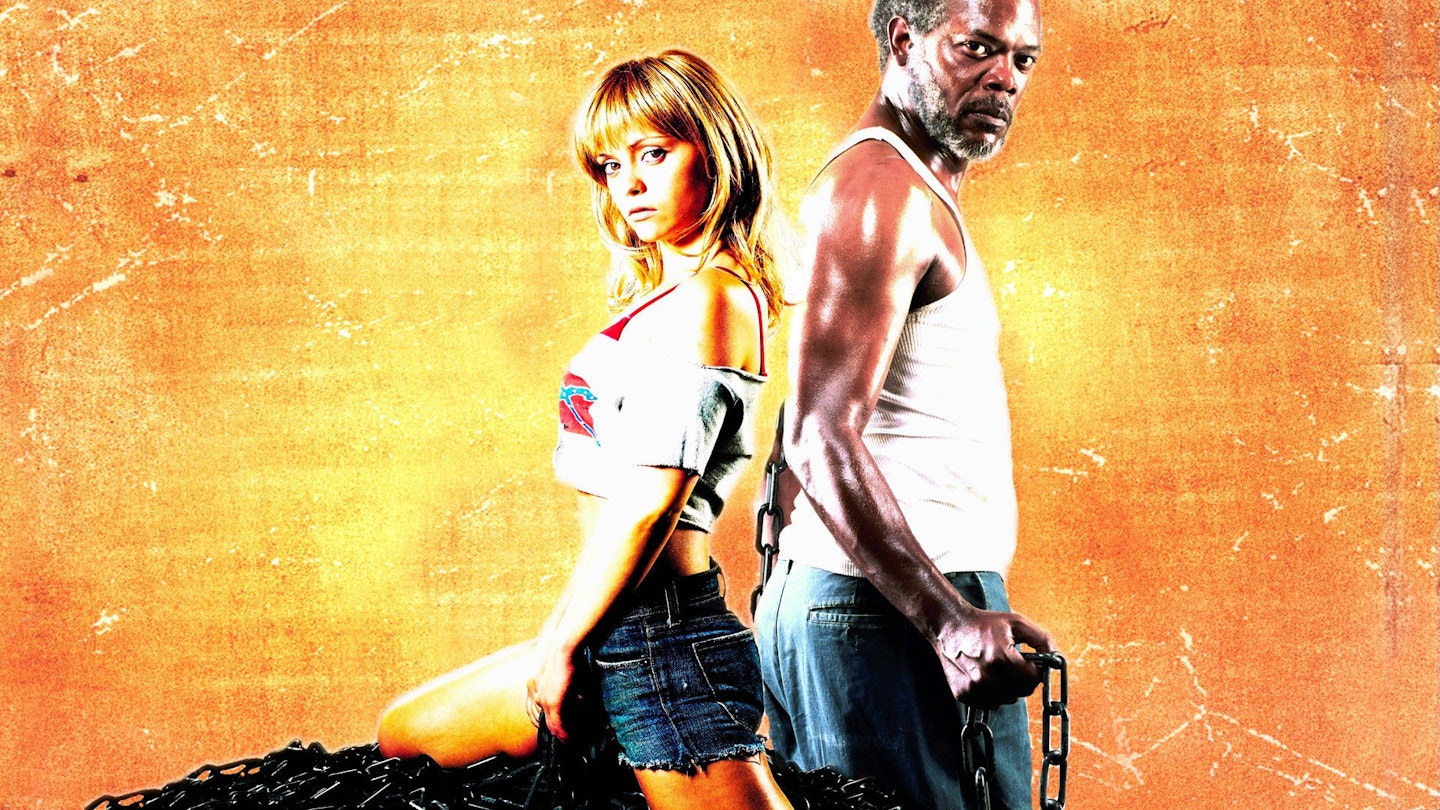How many times have you seen a movie and wondered what the hell everyone was thinking? After all, it’s a process that requires an awful lot of effort. First you need a script, then a director, some stars, maybe a studio or just a businessman with deep pockets, but whatever the palaver, it boils down to one thing: at some point, everybody will get together, some of them will stand in front of a camera and act the damn thing out while everyone else is standing around in the video village watching the playback and saying, “Yep, that’s where the money’s going.”
Normally, if this thought occurs to you while you’re actually sitting in the cinema, this is a pretty bad thing. It brings to mind the penis song from The Sweetest Thing, the incomprehensible non-climax of the yet-to-be-released Southland Tales, or the entirety of Freddy Got Fingered. But sometimes that thought isn’t a measure of a film’s failure but a slack-jawed reaction to its success. In theory, Black Snake Moan ought to be a copper-bottomed stinker, but in reality it’s a flawed but strangely charming morality tale, a conservative fairy tale despite its steamy, quasi-porno trimmings.
It’s hard to say from where precisely the film gets its integrity, but it’s safe to start with Samuel L. Jackson. Although Christina Ricci is the star who appears to be taking a risk, rolling round in distractingly pristine white pants and a pointless top that doesn’t seem to be designed to cover anything at all, it’s Jackson who faces the task of not only carrying the film but saving it, and himself, from derision. Indeed, although Jackson’s never been one to shy away from tricky material, his Lazarus seems more like one of Danny Glover’s creations, a witty and intelligent subversion of the ongoing movie stereotyping that still doesn’t quite know what to do with African-American men, casting them as slaves, drug dealers, crooks or God.
Jackson’s performance is vital to the film’s success, and he alone pulls the film back from its supreme, what-were-they-thinking? moment, when Lazarus takes the 40-foot chain and shackles Ricci’s almost comically lascivious Rae to the radiator. It will be almost impossible to enter a cinema showing this film, or rent the DVD, without knowing this is going to happen. But still there’s that frisson: he won’t... he can’t... Ohmigod, he just did. After the confused, and confusing, sexual politics of his last film, Hustle & Flow, which invited us to root for a pimp, this again takes some balls from writer/director Craig Brewer, and once more his leading man saves his neck. Though the film flirts with hot-button American issues of race, sex, and interracial sex, the real story is one of redemption, which Jackson conveys with an unusually tender sense of grace.
Sadly, the remainder of the film doesn’t measure up to this. Brewer’s script ultimately skews towards the twee, painting Rae as a good ol’ girl who’s been messed up by a bad childhood and is now simply looking for the love of a good man. Ricci gives it her best shot, and fans of celebrity skin will sing hosanna when they see how much screen time she’s prepared to give her norks, but Rae needs more depth than simply reason. Still, even this could have been worse; Ricci is ably and unexpectedly backed by Justin Timberlake as her soldier boyfriend. It’s a performance that, together with Alpha Dog, presents him as a surprisingly impressive new talent. Between the three of them, Jackson, Ricci and Timberlake rescue a potentially dire film from becoming camp, fashioning an entertaining and unique oddity that stands out, big time, from the crowd.

